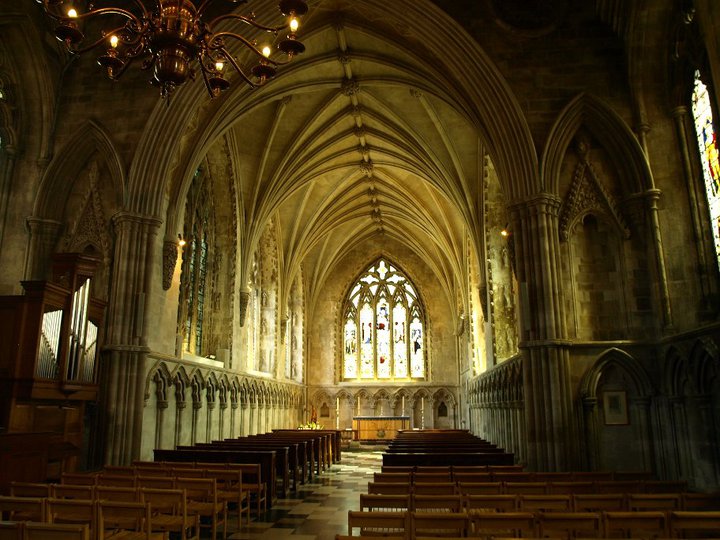[This article originally appeared at The Conversation; feel free to join in the discussion there]
Today, a funeral ceremony will take place for former British prime minister Margaret Thatcher in London’s St Paul’s Cathedral. Outside, protesters will be turning their backs on the coffin as it passes through central London.
This final act of defiance is, compared with much of what we’ve seen in the days since Thatcher’s death, quite mild. Street parties were held from Brixton to Glasgow to celebrate her death. So many people bought Ding-Dong! The Witch Is Dead that it went to number two on the UK charts.
Even here in Australia, the University of Melbourne Student Union passed a motion “unreservedly” celebrating the death of Baroness Thatcher.
This has touched off some interesting debate about whether there is something unseemly about celebrating the death of another human being. But there are at least two importantly different issues in play we need to keep separate here.
The first is the idea that we shouldn’t speak ill of the dead. Is this just a matter of etiquette, or does it have an important moral dimension as well?
When someone dies, we begin to tie up the narrative of their lives, finalising and knotting off the strands of meaning that they wove while they lived. It is a time for consoling the bereaved, but it is also, inevitably, a time for forming judgements.
At the moment of death, a person’s life will always and forever be just what it was. We reflect on the totality of that life and form a view of the whole, much as we do when the credits roll on a movie or we finish the end of a book. The notion of a “final judgement” of the dead in another realm, which features in religions from ancient Egypt to Christianity and Islam, largely reflects what humans do down here already.
With Thatcher, who left so much anger and pain in her wake, this was always going to be an unusually fraught and raw process. But that doesn’t mean it should be put aside in the interests of delicacy. And as Glenn Greenwald has argued in recent days, maintaining a respectful silence may allow the discussion to be co-opted for political ends.
That doesn’t imply that anything goes, however. Philosophers from Aristotle onwards have argued that we have moral obligations to the dead, even though the dead no longer exist. The arguments used to justify this claim are quite ingenious, but I won’t rehearse them here. We don’t simply refrain from slandering the dead because it will hurt their loved ones, but because this somehow harms the dead person themselves. Likewise, we go out of our way to right past injustices because this is what we owe to the dead, not just their survivors or descendants.
Our dealings with the dead are just as ethically governed as our dealings with the living. And the dead are especially vulnerable – “prey” to the living as Sartre put it – because among other things they cannot defend themselves. That was part of Julie Bishop’s rationale in attacking Bob Carr for describing apparently racist comments Thatcher made in his presence. That the dead can’t speak for themselves shouldn’t give them a free pass from criticism, but it does make the responsibility for making that criticism fair and defensible all the more pressing.
But speaking ill of the dead is one thing; celebrating someone’s death is something else.
When a Navy SEAL team killed Osama bin Laden, there were scenes of spontaneous rejoicing in the US. Few stopped to ask whether celebrating a death, even of someone as evil as bin Laden, was appropriate. At least in that case, many people believed that bin Laden’s death constituted some sort of justice, and made the world a “safer place”. It’s hard to see how Thatcher’s passing, at eighty-seven years of age in her bed in the Ritz Hotel, looks like “justice” to even her most forgiving opponent.
Some might say that what’s being celebrated is not the death of Thatcher herself, but of what she stood for. But in that case, the party comes both too early and too late.
It’s too late in that Thatcher stopped being prime minister more than two decades ago. If we’re just relieved that she’s gone, well, she’s been “gone” for a very long time.
Yet it’s also too early in that Thatcher’s legacy is still with us. Indeed, the neo-liberal policies she pursued have become entrenched orthodoxies, well beyond Thatcher’s sphere of direct influence. The death of a frail, elderly dementia patient does nothing to change that.
So what we’re left with, despite protestations to the contrary, seems to be glorying in her death itself. That does take us into very different moral territory. In this case we don’t simply judge a person’s life or actions but repudiate them as a human being. Rejoicing in someone’s death is tantamount to denying them even that most basic moral regard. That should indeed trouble us, however harshly we may judge Thatcher and her legacy.
There will be a moment on Wednesday, late in the ceremony, when the priest will “commend to Almighty God our sister Margaret”. This simple, stark phrase reminds us that at the centre of the drama of death is a person: someone who cared about their life and was loved by others. That fact, unsettling and even infuriating as it sometimes is, cannot be ignored without degrading the regard for even the worst of us that holds the moral sphere together.
Every death, as John Donne reminds us, diminishes us. Rejoicing in death only diminishes us further.

